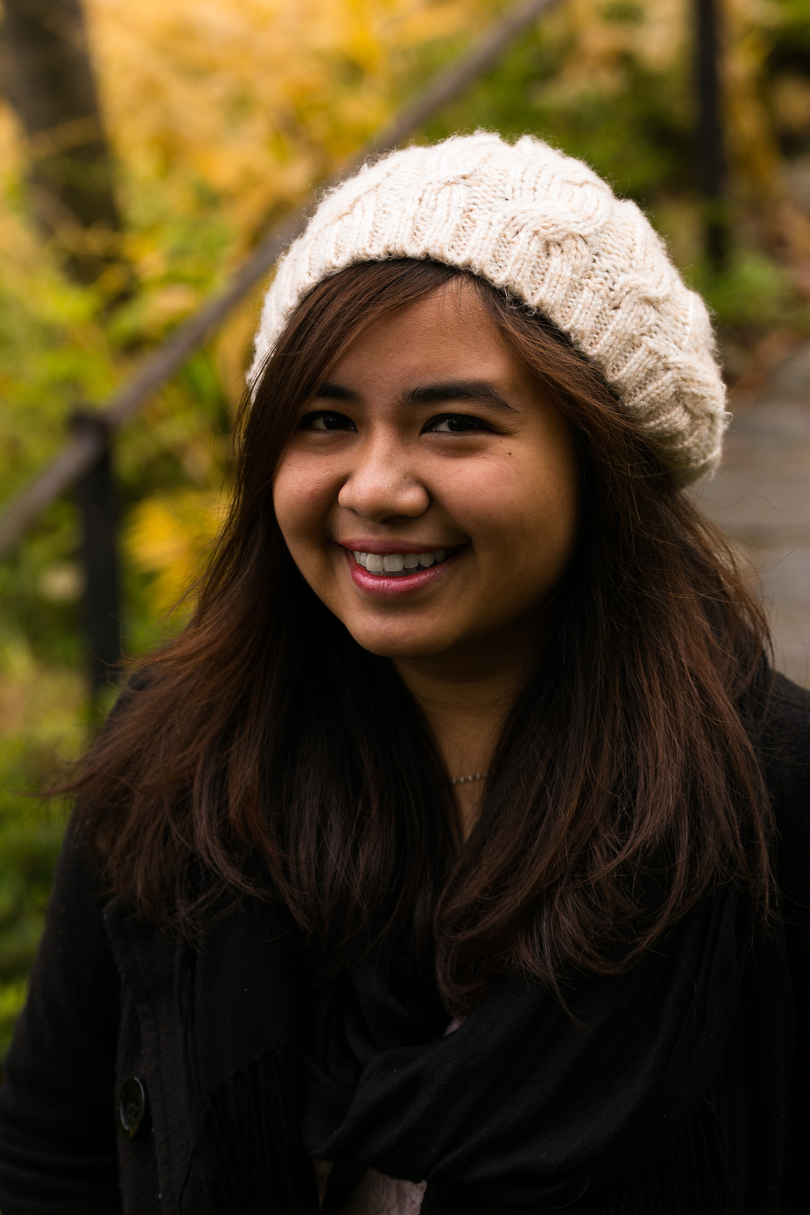Meet a Staffer: Clare Ramirez

After establishing contact with Editor in Chief Mara Corbett, then-staff writer and current assistant copy editor Clare Ramirez wrote three stories detailing student experiences during the Paris attacks in November. Margaret Lin | Staff Photographer
Some of the most-read articles of the fall semester were a series on the Paris attacks written by former D.O. feature editor Clare Ramirez. She was studying with SU London and happened to be in Paris during the attacks as part of a trip to major European cities.
The Daily Orange: Where were you when the Paris attacks started?
Clare Ramirez: We all got dropped off at the Eiffel Tower at about 5 o’clock and given the freedom to do whatever we want. (My group) decided to go back to our hotel before we went to dinner. Our hotel is right near the Place de la République. There were four of us and we walked from our hotel to the Place de la République. We eventually decided on this restaurant called “Indiana.”
The four of us got a message from a girl at SU London and it said something along the lines of, “Hey, I need to know if you’re OK. Please text me back.” So we were like “Yeah, we’re OK.” And at that point I had gotten some messages from friends back in Syracuse.
We ordered our food and one of the girls in our group picks up a call from one of our chaperones from SU London who came on the trip with us. She asked if we were OK and at that moment the French SWAT guys come in and start screaming in French and we have no idea what’s going on because we can’t speak French, obviously. Everyone starts to leave the restaurant.
We go outside and at the corner we see a bunch of ambulances and fire trucks and a crowd. I didn’t hear any screaming or gunshots — all we knew was that something was up.
We power-walked back to our hotel, and that was when we started learning more about what was going on. I remember clearly that I didn’t think it was a big deal. It’s really sad that we are wired that way. I remember seeing 18 (people killed) as one of the first numbers and that number just kept going up, so I was like, “OK, this is serious.”
The D.O.: How did the idea to do a series of articles for The Daily Orange come about?
C.R.: When the attacks first started, I texted my friends and family to say, “Hey, I’m in Paris. There were some shootings and attacks, but I’m OK, just wanted to let you know.” And Mara and Chloe (the editor in chief and presentation director of The D.O., respectively), being some of my closest friends, I texted them. This was at the very beginning — before everyone realized the scope of these attacks.
Later on in the night, Mara texted me again and she said, “Hey, just wanted to let you know that we want to write an article about Paris in the next day or so,” and she said something about taking notes and making observations. But it wasn’t like she was telling me what to do. She knew what I was going through was really scary. It was more like, “if you are up for it, then do it.” I really thought that was very considerate that they didn’t force me to write an article just because I was in Paris, but they took into account that what I was going through was really scary.
What I liked best was that it was my own decision. Nobody forced me to; I wanted to write these Paris articles.

The D.O.: What were some of the challenges you faced with these articles?
C.R.: I remember at the hotel I started writing and I just couldn’t. One, I didn’t know how to start, and two, when everyone around you is scared and nervous and lazy and wants to lay in bed all day, you feel that, too. I had to move from my hotel room — I even wrote in the bathroom and then I went down to the lobby.
The D.O.: How do you think the articles ultimately turned out?
C.R.: I’m really glad that this came out of it — that I was able to tell students’ stories and that students in Syracuse could see terrorism and terrorist attacks could affect people like us.
The D.O.: Looking back, would you have done anything differently?
C.R.: I would have started reporting and making observations before Mara even sent me that text. In a normal, non-life-threatening event, I might have, because you’re a journalist, it’s what you do. But at the same time, when you go through something like that, your mind is everywhere and you’re in shock and you don’t really know how to feel or think.
This interview has been edited and condensed for clarity.




